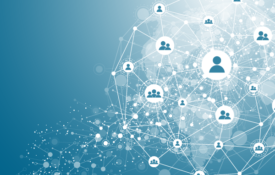-

Citizens Versus the Internet: How Psychological Science Can Confront Digital Challenges
The latest PSPI explores ways that psychological and behavior science can help decrease the negative consequences of Internet use.
-

New Content From Current Directions in Psychological Science
A sample of articles on how children become aware of inequalities, how cognitive science can improve mathematics learning, the role of general cognitive skills in language processing, the rejection of science, how to improve eyewitness-identification evidence, and the links between stress and depression.
-
Distrust Authorities, Including Me
Like many teachers, I’ve agonized over what to tell my students about the crises convulsing us lately, the pandemic and U.S. presidential election. What lessons can we draw from what’s happened? I’ve decided to double down on the anti-wisdom I lay on all my classes: Distrust authorities, including me. ... Another notable expert critic of experts is social psychologist Philip Tetlock of the University of Pennsylvania. In his 2005 book Expert Political Judgment, Tetlock reported on a study of 284 professional pundits, including academics, government officials and journalists, who comment on politics and related issues via mass media and in scholarly journals and conferences.
-
How Parents Are Turning Toward Gratitude in the Pandemic
“Graduation is canceled, we can’t fly home to visit family in Texas, and no, school won’t be in person this year.” I say this fast to my teenage daughter, bracing myself for her reaction. She shrugs her shoulders, a resignation settling into her arms and legs, as she walks away and her bedroom door slams. I understand her anger and melancholy. We are practicing a different vocabulary in 2020, with words such as social distancing, pandemic, masks and covid-19 — terms that may have sounded dystopian before this year. The jerky roller-coaster ride has meant making cancellations, juggling multiple roles and sacrificing normalcy. ...
-
Kids Are Anxious And Scared During The Pandemic. Here’s How Parents Can Help
For the kids in our lives, the last nine months have been many things. Scary — because an invisible, unknown illness was suddenly spreading across the globe. Maybe even fun, when the possibility of school closing felt like a snow day. But for many, that novelty has given way to frustration and sadness — even depression and anxiety. Just like adults, kids are wondering: Will I get sick? Will someone I love die? It's a lot for kids and parents to handle. So we talked to the experts and came away with five tips for how you can help your kids through this. ...
-
We Know How to Curb the Pandemic. How Do We Make People Listen?
At this point, we have all the scientific information we need in order to prevent the surgings of the coronavirus: Avoid gathering indoors with people from outside your household, keep physically apart from others, wear a mask, wash your hands often. Among those who can follow these precautions — a lot of people, as policymakers should recognize, can’t afford to — too many are still disregarding public health advice. A recent report by researchers from Northeastern University and elsewhere found that the number of Americans heeding most recommendations has dropped steadily since April.

